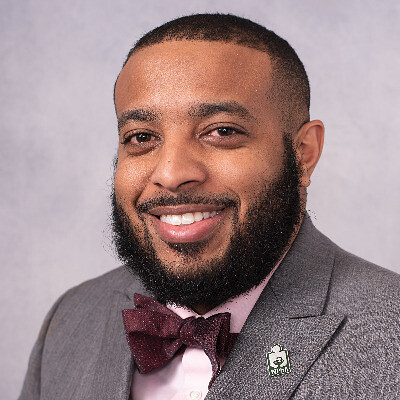This talk addresses the critical role of HIV prevention in underserved communities, focusing on increasing awareness and access to PrEP. Through an HIV Prevention Fellowship, as a pharmacist who lacked specialized HIV training, I am able with interprofessional healthcare providers in metro and rural communities combat stigma, educate patients, and increase awareness, initiation and use among underserved populations. The fellowship aims to transform interprofessional practitioners into HIV prevention specialists, to connect patients with life-saving resources and make PrEP more accessible in areas with limited resources. By sharing insights on addressing stigma and improving PrEP access, this talk presents how proactive, compassionate care can transform HIV prevention, reducing incidence rates in communities often overlooked.
The audience should take away an understanding of the critical role that HIV prevention, through PrEP access and education, plays in underserved communities. They will see how an interprofessional approach, involving pharmacists and other healthcare providers, can directly combat stigma and increase PrEP awareness, initiation, and use among populations that often face barriers to healthcare. By sharing experiences from the fellowship, the audience can appreciate how targeted, compassionate, and proactive care can transform practitioners into dedicated HIV prevention specialists. The goal is for attendees to recognize that improving PrEP access in both metro and rural areas isn’t just about providing medication or being trained as a specialist in HIV. I expect for them to take away that it is about dismantling social and systemic obstacles to care. Ultimately, I expect them to understand more about the fellowship and its aims to build a more equitable healthcare experience for improved and fair access to HIV prevention, regardless of their background or location.
This talk can influence future practice by encouraging healthcare professionals to participate in a more proactive and interprofessional approach to HIV prevention, especially in underserved communities. Highlighting the benefits of PrEP and the role of pharmacists and other healthcare providers as HIV prevention specialists, highlights the importance of comprehensive training that includes both clinical skills and cultural humility.
Practitioners may feel inspired to seek out or advocate for this fellowship or similar fellowship opportunities that emphasize community engagement and interprofessional collaboration that ultimately broadens their capacity to deliver care. Also, by sharing the impact of this training, can encourage health systems and institutions to invest in education and resources that prioritize accessible, patient-centered care, aimed at reducing HIV incidence in often overlooked populations.
In support of improving patient care, this activity is planned and implemented by The National Center for Interprofessional Practice and Education Office of Interprofessional Continuing Professional Development (National Center OICPD). The National Center OICPD is accredited by the Accreditation Council for Continuing Medical Education (ACCME), the Accreditation Council for Pharmacy Education (ACPE), and the American Nurses Credentialing Center (ANCC) to provide continuing education for the healthcare team.
As a Jointly Accredited Provider, the National Center is approved to offer social work continuing education by the Association of Social Work Boards (ASWB) Approved Continuing Education (ACE) program. Organizations, not individual courses, are approved under this program. State and provincial regulatory boards have the final authority to determine whether an individual course may be accepted for continuing education credit. The National Center maintains responsibility for this course. Social workers completing this course receive continuing education credits.
The National Center OICPD (JA#: 4008105) is approved by the Board of Certification, Inc. to provide continuing education to Athletic Trainers (ATs).
This activity was planned by and for the healthcare team, and learners will receive Interprofessional Continuing Education (IPCE) credit for learning and change.


Physicians: The National Center for Interprofessional Practice and Education designates this live activity for AMA PRA Category 1 Credits™. Physicians should only claim credit commensurate with their participation.
Physician Assistants: The American Academy of Physician Assistants (AAPA) accepts credit from organizations accredited by the ACCME.
Nurses: Participants will be awarded contact hours of credit for attendance at this workshop.
Nurse Practitioners: The American Academy of Nurse Practitioners Certification Program (AANPCP) accepts credit from organizations accredited by the ACCME and ANCC.
Pharmacists and Pharmacy Technicians: This activity is approved for contact hours.
Athletic Trainers: This program is eligible for Category A hours/CEUs. ATs should claim only those hours actually spent in the educational program.
Social Workers: As a Jointly Accredited Organization, the National Center is approved to offer social work continuing education by the Association of Social Work Boards (ASWB) Approved Continuing Education (ACE) program. Organizations, not individual courses, are approved under this program. State and provincial regulatory boards have the final authority to determine whether an individual course may be accepted for continuing education credit. The National Center maintains responsibility for this course. Social workers completing this course receive continuing education credits.
IPCE: This activity was planned by and for the healthcare team, and learners will receive Interprofessional Continuing Education (IPCE) credits for learning and change.
Learners can claim CE credit by completing the Daily Evaluation.

